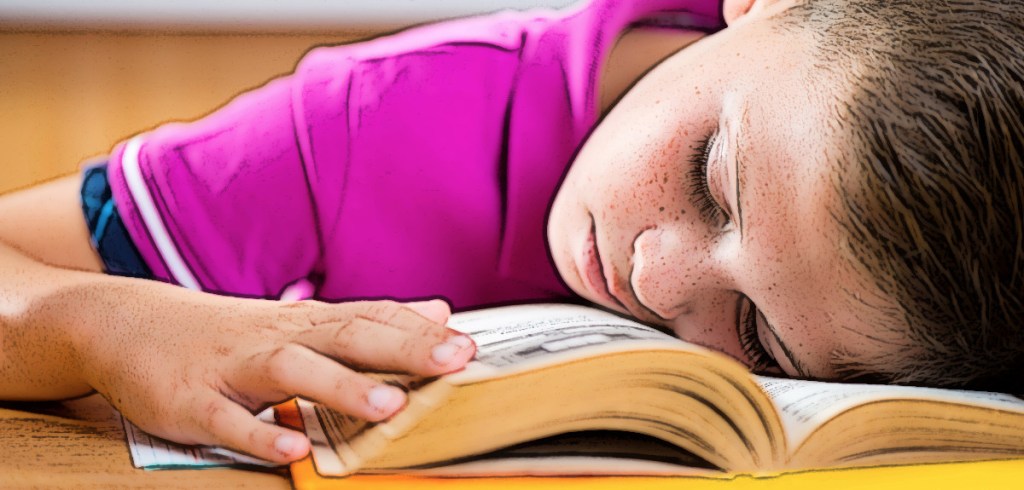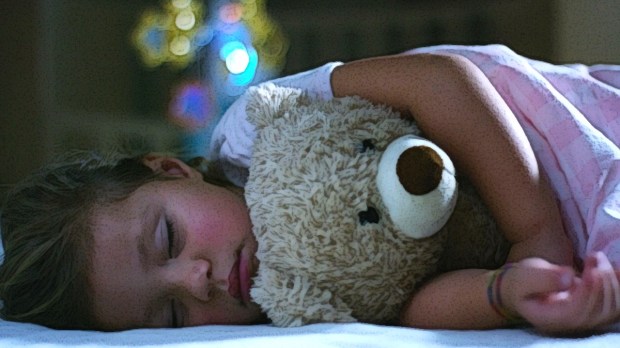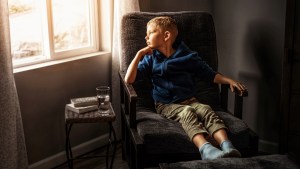We don’t play when it comes to sleep in our house. During the school year, my 3 kids under 10 have a strict 7:30 bedtime. My 10- and 13-year-olds get exactly one extra hour, and during the summer those bedtimes roll back by one hour only.
I’ll be honest — most of my mom friends think I’m crazy. When they hear that my kids go to bed at 7:30 they usually give a stunned laugh and say, “But why? And how?!”
The why is easy. Kids need more sleep than adults in order to keep up with the demands of their rapidly growing bodies and brains — a lot more sleep, in fact. 3- to 5-year-olds need 11 to 13 hours of sleep, 5- to 10-year-olds need 10 or 11 hours of sleep, and 10- to 17-year-olds need 8.5 to 11 hours of sleep each night.
If that seems like an excessive (or even impossible) amount of sleep, here are just a few areas where kids negatively impacted by sleep deprivation:
1EMOTIONALLY
Lack of sleep increases activity in the amygdala, the emotional rapid-response center of the brain. Kids who don’t sleep enough feel more negative emotions and have a diminished ability to control their responses to those emotions. An overactive amygdala also inhibits kids’ ability to feel positive emotions, which is why overly tired kids will cry or protest when presented with an activity they normally enjoy.
Even more concerning, kids who don’t sleep enough are at a much higher risk for depression, anxiety, and other emotional disorders later in life. Researchers believe this is because a child’s greater brain plasticity makes them more susceptible to the neural pathways that can cause maladaptive emotional processing — and the more those pathways are reinforced by lack of sleep, the greater the risk that they’ll become entrenched.
2PHYSICALLY
The highest amounts of human growth hormone are released to the body when kids are sleeping. If your child goes to bed late one night, it’s not going to stunt their growth — but if your child chronically gets even an hour or two less than the amount of sleep he or she needs, physical development is likely to be affected. They’ll also age faster on a cellular level, since chronic sleep deprivation shortens the telomeres (the end caps of chromosomes). Plus, your kids will tend to be sick all the time, since sleep is when their bodies make and release cytokines, a protein that targets infection and inflammation. Sounds pretty terrible, huh?
3MENTALLY
Lack of sleep literally makes learning impossible, according to researchers at University Children’s Hospital Zurich:
During the day, our synapses get excited as a response to the stimuli that surround us. During sleep, however, these synapses restore themselves and their activity “normalizes.” Without this restorative period, the synapses stay maximally excited for too long. Such a state inhibits neuroplasticity, which means that learning new things is no longer possible.
Since kids’ brains are by far more neuroplastic than adults, this means that lack of sleep has an exponentially greater effect on their synapses, depriving them of the rapid ability to learn that characterizes childhood.

Remember, these are just a few of the negative effects of sleep deprivation on kids. I didn’t even go into the way sleep regulates metabolism, cortisol, or motor function—it’s safe to say that without adequate sleep, literally every single system in our children’s bodies is severely compromised.
Making it happen
But how do you do it?I can hear you asking. How do you get your kids to go to sleep when their friends are still outside playing?
Honestly, that part is simple (though certainly not easy). We set a bedtime, communicate it constantly, and stick to it. After-school routines all revolve around achieving that bedtime, which means homework is started pretty soon after the kids walk in the door. After that they lay out their clothes for the next day, and then they usually go play outside while I get dinner ready. We don’t allow electronics on school days, which honestly makes getting them to bed on time infinitely easier.
Dinner is usually around 6 p.m., and after everything is cleaned up, they shower or bathe and get ready for bed. If they happen to be ready for bed early, they’re allowed to read books or do puzzles until it’s time to say prayers. And when the lights go out, they stay out.
Once we settle into a routine, it’s really not that hard. Sure, they complain and negotiate, but they do it half-heartedly. They know I won’t change my mind, so they resign themselves to their bedtime fate pretty quickly. And since they get up so early on school days — by 7:30 — they’re ready for bed even if they protest. Even the most reluctant among them rarely stays awake for longer than 10 minutes once the lights are out.
A rested family is a happy family
Here’s one of the most amazing things about making sure your kids get enough sleep: it gives you time to finish up the evening work and get to bed, too. Magical things happen when the whole family is well-rested. Breakfast is happier, schoolwork is easier, the sun is shinier … but don’t just take my word for it.
Try it yourself. I promise, you’ll be amazed at how much more enjoyable life is when your kids are well-rested.



